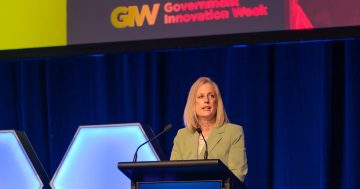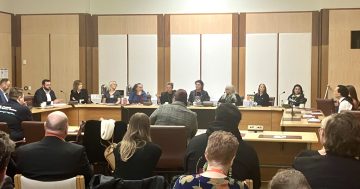Jake Evans* says that unless Australia develops its own AI technologies we will be stuck with other people’s…
 Australians need to decide how we use artificial intelligence technologies before those decisions are made for us, a major report commissioned by chief scientist Alan Finkel has warned.
Australians need to decide how we use artificial intelligence technologies before those decisions are made for us, a major report commissioned by chief scientist Alan Finkel has warned.
A group of expert scientists, working under the Australian Council of Learned Academies, have released a report urging the Government to develop a national strategy to guide regulation and use of emerging technology, and establish an independent AI institute.
It also noted that “inevitable” AI technology was poised to disrupt almost every fabric of Australian society and warned that it should be developed in an “effective” and “ethical” way.
The wide-ranging report examined how Australia was placed to respond to emerging technologies, including everything from ‘robo-judges’ in the United States sentencing low-range offenders, to automated psychologists identifying a client’s subtlest expressions, or automated cameras in China publicly shaming jaywalkers.
Reporting group co-chair Professor Neil Levy, the former head of neuroethics at Victoria’s Florey Institute, said AI offered great opportunity and great risk.
“We are talking about a huge contributor to the world economy … and something with very major risks if it’s not managed appropriately,” Professor Levy said.
National strategy needed
Professor Levy said Australia needed to have control over its own AI systems and the data they used.
He noted China’s recently introduced ‘social credit score’, where citizens could be rewarded or punished by a largely automated behaviour monitoring system, and that technologies like it could enter Australia if the country was not prepared to respond to their emergence.
And in the US in 2013, the Michigan Unemployment Insurance Agency (UIA) launched an automated information system aimed at detecting fraud that then recorded a 93 per cent error rate, resulting in 20,000 claimants being falsely accused of fraud.
“We have ethical standards that we want to abide by, we need to know our software, what use it’s being put to, and what kinds of behaviour we are complicit in,” Professor Levy said.
“That means we need a transparent chain to be able to see where software is going, where our intellectual property is going, and where it is coming from.”
Professor Levy said currently Australians were buying AI “off the shelf”, which was not necessarily well designed for the Australian environment.
“Overseas, law enforcement using facial recognition has tagged members of ethnic minorities as suspicious, simply because they haven’t been included in the training stage of the AI program,” he said.
“If we use off-the-shelf AI we risk that situation happening here.”
Professor Levy said the report deliberately avoided prescribing a particular solution, it pointed to the United Kingdom as a model.
In April last year, the UK Government released a national AI strategy and established several new bodies to support the development of AI, including an Office for Artificial Intelligence.
Australians need to be confident their information is secure
A key finding of the report was that Australians would benefit from an ‘ethical certificate’ on consumer technology, similar to the food standards label.
The chief scientist has previously proposed a “Turing certificate” for smartphones, smart home devices and other technologies that collect people’s data, that would require a minimum standard that promised not to surreptitiously collect or use a person’s data.
Dr Finkel said the Turing certificate was already under “active consideration” by Standards Australia.
Professor Levy said for Australia to become a leader in artificial intelligence technology, the public needed to have confidence that their information was secure.
Opportunity to be leader in AI: report
Dr Finkel said it was up to Government how it chose to respond to the report, but said it needed to begin asking, “What kind of society do we want to be, and how do we ensure that most effectively?”
“I would hope that government departments … will use this report as if it were a reference manual,” he said.
But Professor Levy said Australia was well-positioned to be a local leader in artificial intelligence.
“We do need to be realistic, we can’t compete everywhere,” Professor Levy said.
“But it’s realistic to say we have opportunities to be excellent in some things, we have proven that time and time again.”
* Jake Evans is an ABC News reporter in Canberra. He tweets @jcobevans.
The article first appeared on www.abc.net.au










